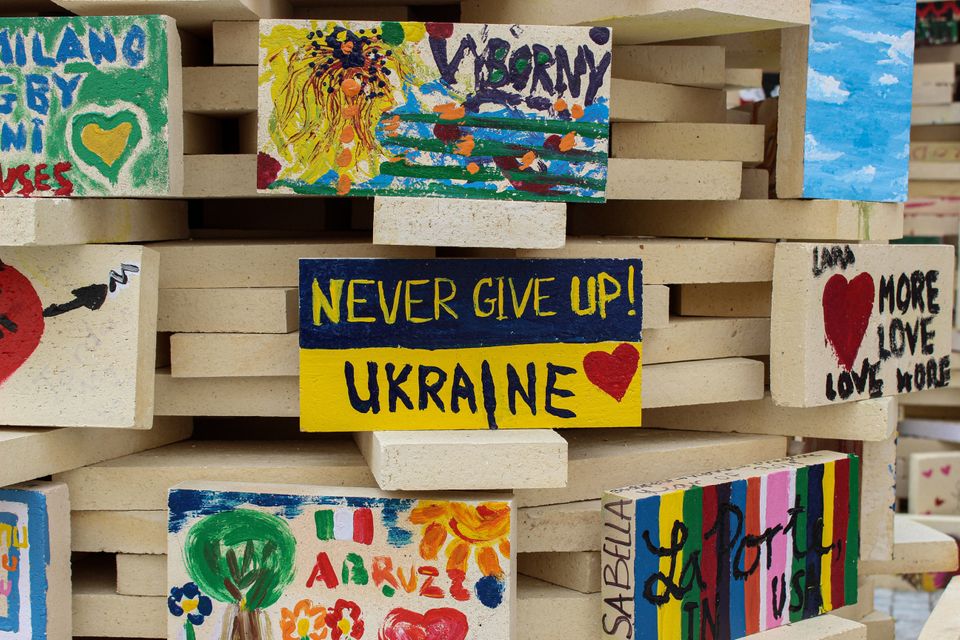When Russia attacked my native Ukraine on February 24 2022, I was with my Ukrainian team on an annual retreat in Egypt. After the initial shock wore off, I realized I was responsible for 21 other people: they couldn’t go back to Ukraine and we couldn’t stay at the resort for more than 5 more days. I had to acquire a new set of crisis management skills very fast.
Here are some of the things I learned.
Plan only the next step
Chaos doesn’t allow you the luxury of long-term planning, because the environment is constantly changing. News is coming in fast, the plans you made an hour ago are now obsolete. All you can afford is to plan for the next step or two.
My first step was to make sure everyone’s family back home was safe and determine whether anyone’s family members needed to be evacuated. I didn’t know where we could evacuate them or where we would end up, ourselves, but that would be something to figure out later.
Prioritize urgent over important
When you’re planning only the next step, you have to prioritize urgent problems over important ones. You will never get to the important thing unless you unblock yourself from something that’s right in your face. Although the big question for everyone was where could we go from Africa, I had to get a few things out of the way first. A few men on the team wanted to go back to Ukraine to their wives and kids who stayed back, so with the leadership team we quickly had to compile a route for them from North Africa to central Ukraine, which involved air travel to Poland, followed by busses and taxis over the Ukrainian border, while trying to avoid Russian missiles on the way.
Of course, the urgent issues will never stop coming if you let them, so you have to use your judgment when to put away small issues and focus on the big picture.
Provide strong and available leadership
Leaders are a stabilizing factor. When the world is crashing around them, people need to have a solid, comforting center to look up to. They need someone who will reassure them that there’s a plan to move forward. Equally important is that there’s a single voice communicating with the team to avoid the loss of confidence due to even small discrepancies in messages.
With a small leadership group we opened the center of operations in my hotel room, where we made calls to our friends and partners in Europe, discussed options for moving forward, and where everyone on the team could come in, talk about their circumstances and get help. It was amazing to see how people who previously didn’t display leadership qualities stepped up to look for airline tickets, bus routes, vaccine and mask requirements for various destinations.
It is hard to overestimate how stable leadership and frequent communication kept many of our team members from collapsing from the pressure.
An imperfect option is better than inaction
Sometimes there are no great options to choose from and in a normal situation you might not make an immediate decision. But in a crisis, you have to choose. Take a breath and pick one that will extend your option space in the future. Although you can’t calculate the outcome of each decision due to the changing environment, you can get an idea which of the imperfect options will open up new possibilities for you in the future.
In our case, I knew that extending our stay in Egypt would limit our future options. It was clear that we had to go to Europe, but where? Through a friend, I found four days of lodging for the team at a Calvary Chapel base outside of Budapest. We bought tickets there without knowing what would come next, but at least I knew we would have more options once there. In a crisis, rough imperfect solutions are ok if they give you a platform from which to make better decisions.
It turned out to be a good move. In Hungary, my leaders and I kept reaching out to people we knew as well as available BnBs we found around Europe. Finally, an IT community in Mönchengladbach, Germany, offered our team several apartments to stay at as well as an office to work from. It was perfect. I couldn’t believe how fortunate we were.
Your culture will pay dividends
In a crisis, the culture you have already built pays off in a major way. As a leader, I had to walk a fine line between a shocked, disoriented, grieving team and clients, who, although very supportive, might start to get concerned about their projects and look to diversify their risk if the progress was going to stall for too long.
I had to make sure we kept the business. When we got to Hungary, I got everyone together and told them, “The worst thing we can do right now is stop working.” We agreed to start ramping up on work, while taking care of our families and immediate needs in the new location. I could make such a difficult ask of the team only because of the culture we had built at New Normal over 10 years: my team members know that they can trust that I will take care of them and they didn’t feel the need to make “every man for himself” decisions, which in turn gave them peace of mind to take care of our clients. As a result, our unscheduled downtime was only two days.
At the same time, our clients banded around my team and displayed incredible solidarity. Not only did they not diversify away, but rather they gave us the time we needed to settle in. They knew our work ethic and dedication to their success, proven over the years, so that while most of the Ukrainian IT industry shrank because of client risk aversion in 2023, my business grew.
It pays to build a culture of trust and transparency with your team as well as clients in peaceful times, but it can downright save your business in a major crisis.
Embrace reality as it is
In his legendary book, “Man’s Search for Meaning,” concentration camp survivor Victor Frankl recalls that deaths and suicides in his camp would rise between Christmas and New Year’s. A lot of prisoners held out hope that they would be rescued by Christmas and lost their will to live after that didn’t happen.
Most of us on the team initially thought that we would be able to go back to our Ukrainian office in 3 weeks, then in 1 month, and then in 3 months.
Such thinking kept us from fully taking advantage of the situation we were in, from adapting to our new surroundings and making the most of it both for our lives and productivity at work.
In a crisis, it is essential to embrace reality as it is, to act on facts rather than aspirations. As leaders we might lie to ourselves that things are not as bad as they seem or hope that if we give it time, the crisis will blow over. But it’s a mistake. As dire as the situation might be, acting on the reality will allow you to make better decisions as a leader and lead your business through dark times.
I realized that I needed to stop giving the war in Ukraine imaginary deadlines, and focus on improving the quality of life and work for myself and the team. With the leaders we decided to commit to a long-term office lease in Germany, purchase much-needed equipment, we were able to get better rent deals on apartments, and take comfort in the peace of mind that comes from committing to a plan.
Remember that this is temporary
For New Normal, the crisis is not yet over. A good part of my team can’t go home. But we know it’s not forever.
By responding to each situation as it arises with consistent action and by maintaining open communication with the team, I’ve learned not only to lean into the situation we find ourselves in, but to use it to stabilize our operations and support Ukraine by providing war-immune jobs.


